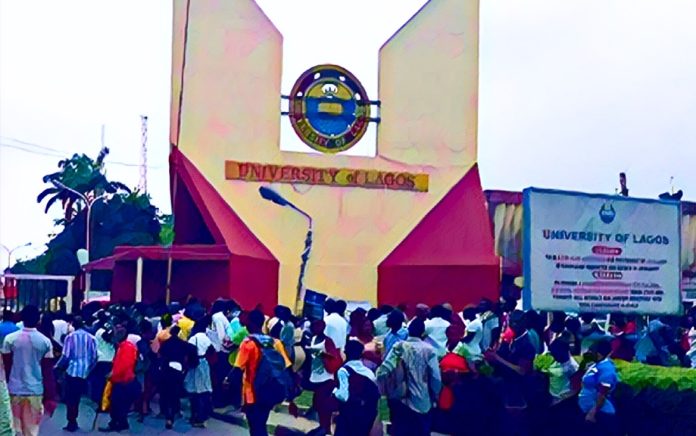Key Points
-
UNILAG skitmaking ban targets unauthorised filming and online content creation.
-
University cites reputation, safety, and student privacy as reasons for the UNILAG skitmaking ban.
-
Offenders risk suspension or arrest under the new UNILAG skitmaking ban.
Vlogging, skitmaking, and other forms of content creation are prohibited on the University of Lagos (UNILAG) campus. The administration claims that doing this is necessary to safeguard the safety, integrity, and privacy of the students.
In an internal memo signed by the university’s spokesperson and head of the information unit, Mrs. Adejoke Alaga-Ibraheem, management cautioned that no one—students, alumni, or others—should produce digital content, record videos, or make skits without first obtaining written consent from the institution.
A concerning increase in unapproved film shoots and skits being recorded in lecture halls, residence halls, and administrative buildings prompted the ban, according to the notification, which was released on October 26, 2025. It said that such behaviour damaged the school’s brand and put its safety and reputation at risk.
Skits are prohibited at UNILAG for grounds of safety and reputation
The UNILAG skitmaking restriction was prompted by reports that a number of individuals, some posing as content creators, had entered restricted areas under false pretences, Mrs. Alaga-Ibraheem said.
She continued, “The management has seen the troubling trend of unauthorised people coming into the university’s grounds to shoot videos, skits, and short films without permission.” “These kinds of actions are security breaches that put our community’s privacy at risk.”
Given that social media viral content is making it more difficult to distinguish between instruction and entertainment, she said the policy aligns with the university’s broader attempts to maintain discipline and order.
Responses from students to UNILAG’s implementation of content restrictions
Students’ reactions to the UNILAG skitmaking ban have been divided, with many believing it to be overly severe.
A Creative Arts 400-level student named Temidayo Ogunleye stated that the regulation would discourage young artists from showcasing their work on social media. She declared, “The university should regulate, not ban.” “Most of us are trying to make creative portfolios that depend on being able to get to campus life.”
However, there were some who favoured the action. “It’s about protecting our identity,” Chuka Nwokolo, a student studies political science. A few of such skits reflect poorly on the school and attract unwelcome attention.
The policy, according to the institution, is a means of maintaining order
According to management, the order is not intended to inhibit creativity. Instead, it aims to ensure that the university’s name and facilities are utilised responsibly and to make the process of resolving requests for shooting more formal.
Authorities added that violators can be arrested by campus security or suspended, depending on the seriousness of the offence.
Recent warnings against recording on campus without permission have come from Obafemi Awolowo University and the University of Ibadan. This is comparable to the actions taken by UNILAG.
The ruling demonstrates to UNILAG the growing conflict between institutional control and the new surge of digital creativity among Nigerian youth. The right to free speech and reputation protection must be balanced carefully.



